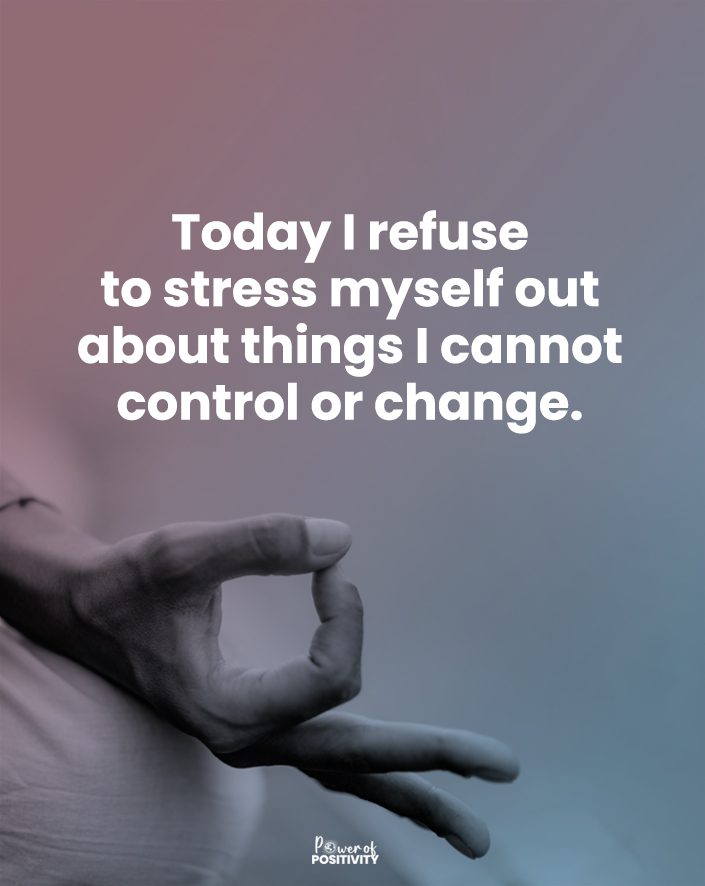Here are the red flags that might show she wants to end things.
Working with a partner in your relationship can sometimes feel like walking through a maze, where each turn brings challenges and revelations. Understanding the subtle nuances of these relationships, especially when they start to change, is crucial for emotional well-being. In this context, we will explore a sensitive yet significant topic: the signs that a woman might be planning to end a relationship.
It’s vital to approach this topic with the understanding that each relationship is unique, and the behaviors of individuals within these relationships can vary greatly. Our aim here is not to stereotype or generalize but to offer insights that might help you clarify your situation. This article intends to inform and support you by shedding light on signs often, but not always, revealing a partner who might end a relationship. These signs are potential indicators, not definitive proof. Thus, you should read this article with empathy and understanding.
NOTE: These are general signs but can apply to any gender. If you want to know the specific behaviors of a man who wants to break up, check out our separate article.
What Are the Signs a Woman Will End a Relationship?

Sign 1: Emotional Distance
One of the most significant signs that a woman may be contemplating ending a relationship is the development of emotional distance. Emotional distance can be tricky to pinpoint as it often develops gradually. It might start with less enthusiasm for shared activities, shorter conversations, or a noticeable decrease in sharing personal thoughts or feelings.
But why does emotional distance happen, and what does it imply for a relationship? Emotional distance can stem from unresolved conflicts, unmet emotional needs, or reassessing relationship goals and values. For some women, creating emotional distance is a way of self-protection, preparing themselves emotionally for the eventual end of the relationship. For others, it could indicate dissatisfaction or discomfort they struggle to express directly.
The implications of emotional distance are profound. It can cause a collapse in communication and intimacy, creating a gap that can be challenging to bridge. In a relationship, emotional closeness is the foundation for trust, understanding, and mutual support. When this foundation begins to weaken, it can signal that the relationship is facing significant challenges. Understanding and addressing the reasons behind this growing distance is crucial, as it can be the key to either repairing the relationship or recognizing that it might be time to let go.
Sign 2: Decreased Communication
Effective communication is key in every healthy relationship. We build strong connections with our partners by sharing our thoughts, feelings, and daily experiences. When communication is rich and frequent, it fosters understanding, intimacy, and trust. However, a notable decrease in communication can be a significant sign that a woman is rethinking her involvement in the relationship.
Decreased communication may manifest as shorter conversations, a reluctance to engage in meaningful discussions, or a noticeable delay in responding to messages. These changes might indicate that she is withdrawing into herself, possibly due to discomfort in the relationship or an internal struggle she’s experiencing. Communication isn’t just about the frequency of interaction but also about the depth and openness within those exchanges. When a woman starts communicating less, it can signify she distancing herself emotionally. That can be a precursor to a physical departure from the relationship.
Sign 3: Avoiding Future Commitments
For many couples, planning for the future is a significant aspect of their relationship. It symbolizes hope, commitment, and a mutual vision. When both partners actively engage in future planning, it shows dedication to their journey together. However, suppose a woman avoids discussing future commitments or hesitates to make long-term plans. In that case, it can signal her doubts about the relationship’s longevity.
This avoidance might take various forms:
- Reluctance to discuss moving in together.
- Evasiveness about long-term relationship goals.
- Disinterest in conversations about future events.
When a woman pulls back from planning for the future, she might be unsure if the relationship aligns with her personal path or long-term goals. This hesitance to commit can speak volumes about her current state of mind regarding the relationship and may point to deeper concerns or a shift in her feelings.
Sign 4: Less Physical Affection
The correlation between physical affection and emotional connection in a relationship is profound. Physical affection is often a tangible expression of the emotional bond between partners. It reinforces connection, trust, and mutual desire. A noticeable decrease in physical affection from a woman, such as fewer hugs, kisses, or other intimate gestures, can be a warning sign of emotional disconnection.
This decline in physical closeness is not always about a lack of sexual desire but rather about the emotional distance that might be forming. It could be due to discontent, unresolved issues, or a lack of emotional satisfaction in the relationship. Physical affection is a barometer of sorts, reflecting the health of the emotional aspect of the relationship. When a woman starts to withdraw physically, it often mirrors a withdrawal of her emotional investment, signaling that the relationship might not be fulfilling her needs as it once did.
Sign 5: More Time Spent Independently
The balance between shared and independent time is essential for personal growth and relationship health. Shared time fosters intimacy and bonding, while independent time allows individuals to pursue their interests and maintain their identity. However, a noticeable shift towards spending more time apart could signal underlying issues in the relationship. This change is more than spending time in solitude for self-care.
If a woman allocates significantly more time to activities without her partner, it could indicate a need for space or a shift in her feelings. This change might manifest as spending more time with friends, engaging in solo hobbies, or making plans that consistently exclude her partner. While it’s healthy and normal to have separate interests, a drastic increase in independent time at the expense of a couple’s time can suggest a decrease in her desire to share experiences with her partner. It could also indicate that she finds fulfillment outside the relationship, possibly due to a lack of satisfaction.

Sign 6: Change in Priorities
The priorities of the individuals involved often influence the dynamic of a relationship. In the early stages, partners may place the relationship at the top of their priority list. Over time, these priorities can change, and when a woman’s priorities shift significantly, it can impact the relationship.
A change in priorities might be evident when a woman devotes more time and energy to her career, social life, hobbies, or other interests, relegating the relationship to a lower status. These changes could be due to personal growth, career aspirations, or a change in her perspective on the relationship. When the relationship is no longer a central part of her life, it can lead to feelings of disconnect and neglect for the other partner. It’s crucial to understand that while evolving priorities are a natural part of life, a drastic shift that consistently places the relationship on the backburner can signify deeper issues.
Sign 7: Withdrawal from Shared Activities
Shared activities and interests are the threads that often keep the fabric of a relationship strong. Participating in activities, whether a shared hobby, a regular date night, or simply enjoying a common interest, strengthens the bond and creates lasting memories. However, when a woman starts withdrawing from these shared activities, it can signify a waning interest in the relationship.
This withdrawal might look like a lack of enthusiasm for activities that were once enjoyable together, declining invitations to previously important events, or showing disinterest in finding new activities to share. This behavior can signify that she no longer finds the same joy in these shared experiences. It may also show that she is distancing herself emotionally. When shared activities diminish, it impacts the quality of time spent together and can signal a broader disengagement from the relationship.
Sign 8: Frequent Criticism
In any relationship, constructive criticism can be healthy and lead to growth. However, when criticism becomes frequent and harsh, it can create a negative atmosphere and signal deeper issues. Increased criticism from a woman in a relationship often indicates deeper dissatisfaction or unhappiness. This criticism can take many forms, from nitpicking everyday habits to challenging her partner’s fundamental characteristics or decisions.
When criticism becomes a common pattern, it can erode a relationship’s foundation of respect and affection. It can make the partner feel undervalued, misunderstood, and defensive. A woman frequently criticizing her partner might signify her discontent or frustration with the relationship. It’s essential to recognize that such criticism often reflects more significant issues that need to be addressed, possibly pointing towards a deeper incompatibility or unmet needs.
Sign 9: Indifference to Partner’s Needs or Feelings
Empathy and attentiveness to a partner’s needs and feelings are crucial to maintaining a healthy relationship. They ensure that both partners feel valued, heard, and respected. However, when a woman becomes indifferent to her partner’s needs or feelings, it can be a subtle yet clear sign of emotional disengagement.
Indifference can manifest as a lack of interest in her partner’s day, feelings, or opinions. It might appear as a dismissive attitude towards things that matter to her partner or a lack of effort to provide emotional support. This behavior change suggests that the emotional bond and concern for her partner’s well-being have diminished. Indifference is often more hurtful than outright disagreements because it implies a lack of caring about the relationship and its future.
Sign 10: Privacy and Secrecy
Trust and openness are fundamental to a healthy relationship. They foster a sense of security and understanding between partners. However, if a woman becomes more private or secretive, it can raise concerns. Increased secrecy might involve:
- Being elusive about her location.
- Being overly protective of her phone or personal items.
- Avoiding questions about her activities.
This behavior can cause a breakdown in trust and communication. It often indicates that there are feelings she chooses to keep hidden, which can be concerning in a relationship. While everyone deserves their privacy, a shift towards secrecy within a relationship can signal a distancing, a sign that she might be pulling away or contemplating the end of the relationship.

Final Thoughts on the Signs a Woman May End a Relationship
Recognizing the signs that a woman may be planning to end a relationship is not always straightforward. However, understanding these signs is crucial in addressing underlying issues and fostering healthy communication. If you notice these signs in your relationship, it’s essential to approach the situation with openness, honesty, and mutual respect. Communication is key when a couple addresses any concerns or misunderstandings.
Consider seeking professional advice or counseling if these signs resonate with your situation. It’s important to prioritize self-care and make informed decisions about your relationship’s future. Every relationship journey is unique, and seeking help navigating its complexities is okay. Ultimately, making choices that honor your well-being and happiness is paramount.

















